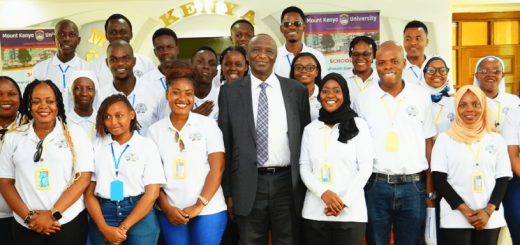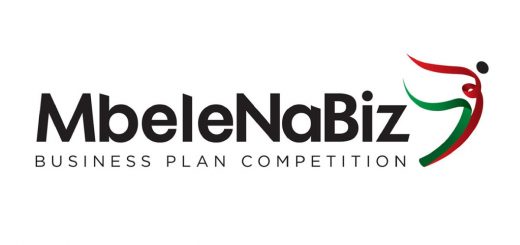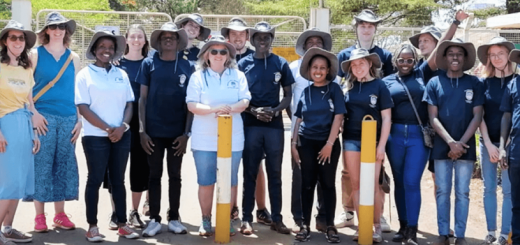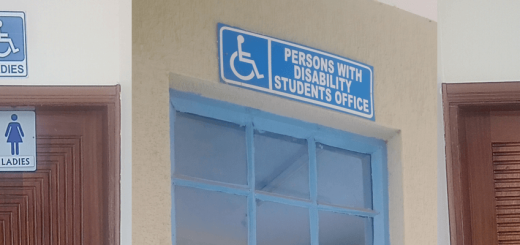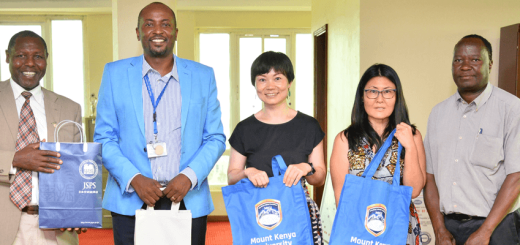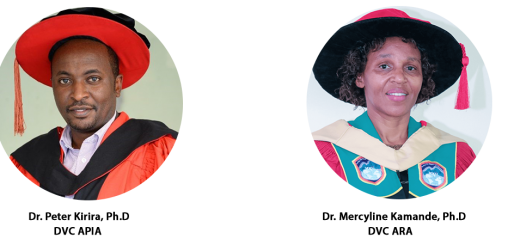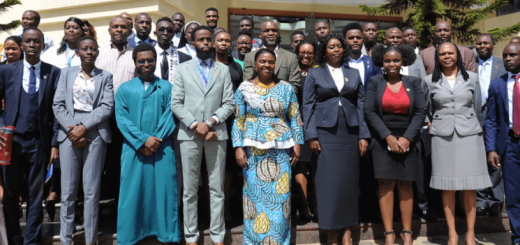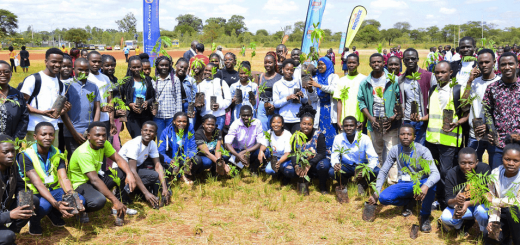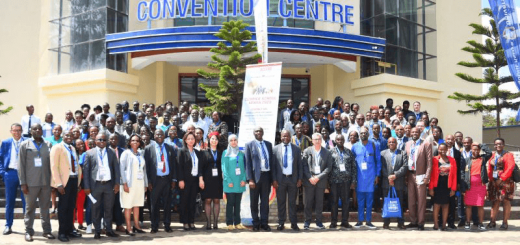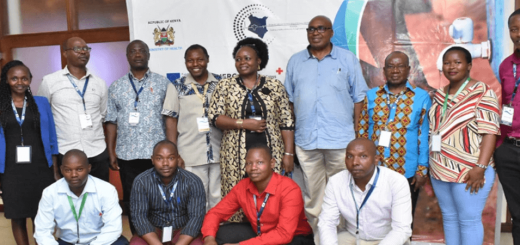The future of education lies in embracing online learning and online courses
The future of education lies in embracing online learning and online courses. Online education’s potential to become complementary or in some cases alternatives – to traditional education cannot be overlooked-
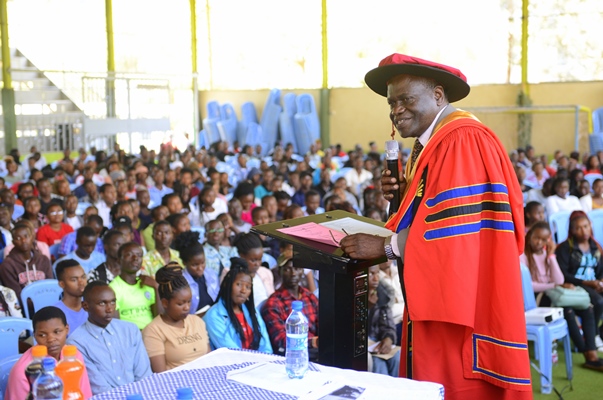
Mount Kenya University Vice-Chancellor addressing KUCCPS students in a past orientation session
MKU has a vibrant Digital technology that has enhanced on-line learning. We have made it more student-centered, in a self-paced format, and it encourages students to take responsibility for their own learning.
Mount Kenya University has leveraged on technology not to stop teaching and learning even during COVID-19 Pandemic.
MKU Online platform is open to all the student population ranging from: Regular, Evening, Weekend, Distance institution Based and electronic Learners (DIBEL) and Distance Learners(DL). The regular students were migrated to access the eLearning resources, teaching and learning after COVID-19 Pandemic. Online Teaching is being conducted using the Microsoft Teams and the Sakai platforms. These platforms allow effective interactions between the students and lecturers.
As an expert in the education field, how do you describe e-learning? What are its key components?
E-Learning is where electronic technologies are utilized to access educational curriculum outside of a traditional classroom. It refers to a course, program or degree delivered partially or completely online. E-learning studies can be focused on three principal dimensions: users, technology, and services. Apart from these other essential components include, the learner, and a comprehensive e-Learning scheme.
How instrumental has the shift to online learning been to the continuation of academic activities at MKU?
On-line Learning has increased the Collaborative learning processes which help students achieve deeper levels of knowledge generation through the creation of shared goals, shared exploration, and a shared process of decision making. In addition, it has enabled the University to continue with the academic programs.
Even before the outbreak of the COVID-19 pandemic, how has MKU revamped its Open, Distance and Electronic Learning (ODEL) directorate in recent years to increase access to university education?
With evolving technology and knowledge, MKU realizes the need to revamp the e- learning courses to make them relevant to the students, staff and the current digital environment. In regard to this the MKU ODEL directorate has been re-vamped in the following ways:
We have refreshed our e-learning templates to improve our online training programs and this has taken to consideration the needs of the modern learner. We have also promoted Mobile Learning through collaboration with mobile service providers such as Safaricom, Telkom Kenya and Microsoft. Making course content compatible with mobile devices ensures that the learners always have access to it, no matter where they are. We also pay attention to content relevance by updating e-learning courses for new workplace technologies and strategies. This has been done by having stakeholders input through forums to ensure that employees can be prepared for the future. We have also added rich media to the online courses to help the learners understand how what they’re learning works in real life. We have introduced social learning in the learning management system. Humans are social. We like interacting with people and sharing our thoughts. We have enabled learners to easily communicate and help each other explore new learning topics.
During this period of the COVID-19 pandemic, how is MKU helping its students keep learning?
MKU has introduced all the students to the e-learning platforms to complement learning as an alternative mode of delivery during this period of the COVID-19 pandemic. We also have e- content and e-library accessible to students off campus to support effective learning. Course work, including Continuous Assessment Tests (CATS) and assignments are administered using the ODEL platform.
How effective are MKU’s e-learning platforms in delivering quality education?
Sustainable Development Goal 4 is on Quality education: Ensure inclusive and equitable quality education and promote lifelong learning. A good quality education is one that provides all learners with capabilities they require to become economically productive, develop sustainable livelihoods, contribute to peaceful and democratic societies and enhance individual well-being. The learning outcomes that are required vary according to context but at the end of the education cycle must include threshold levels of literacy and numeracy, basic scientific knowledge and life skills including awareness and prevention of disease. Capacity development to improve the quality of teachers and other education stakeholders is crucial throughout this process. MKU’s e-learning platforms are effective in delivering quality education by considering the following dimensions of quality. We believe that education leads to empowerment: a process of strengthening individuals, organizations and communities so they get more control over their own situations and environments. Quality education is a crucial factor in combating poverty and inequality in society. In quality education, MKU distinguishes six dimensions that all interventions of the Institution need to meet. These are Equity, Contextualization and relevance, Teaching and learning, Sustainability, Balanced approach and Learning outcomes. The institution has thus put in place relevant and varied policies that ensure this is achieved
What has been the experience by students who use MKU’s e-learning platforms?
The students have appreciated the e- learning platforms and observed that E-learning saves time and money. With online learning, the learners can access content anywhere and anytime-learning also leads to better retention since it is consistent, Scalable, and offers personalization to the learners. With MKU having improved the inter-connectivity, the students appreciate the speed and interaction within the e-learning platform. E–Learning has made education easy for everyone including office-goers, housewives, without compromising much. E–Learning is effective and powerful according to them. It makes information easy to grasp and absorb. It imparts an enhanced ability to learn and implement among the learners.
Should the COVID-19 pandemic persist for long, will MKU students survive on e-learning alone?
The future of education lies in embracing online learning and online courses. Automated or robotic systems are yet to be invented that can mark students work. And it is worth noting that some departments of learning will still require a live classroom set-up, even if it is only a part of the course. This is in areas like medicine where practical lessons of dealing with live patients, taking their temperature, checking their blood tests, for example, are still an essential part of the curriculum. Courses like mechanical engineering and piloting still require the live experience of operating machinery and may not be entirely online; only a part of the system can be made online. The impact of online courses on the education system is a shift from live teaching to the teacher developing online content for students. Therefore, the role of a teacher or educator will always exist and can never be replaced, whether it is an online tutoring session or a live classroom. Furthermore, all the lesson plans are still prepared by a live teacher and downloaded online.
Has COVID-19 necessitated a change in how MKU shall offer courses in years to come? If yes, how?
Yes, Indeed Covid-19 has necessitated a change on everyone. MKU has come up with innovations in Teaching and Learning that will enable the University to unlock infinite possibilities. Presently we have innovative Digital technologies that assist in on-line Teaching and learning and we hope to develop more. Prof Waudo says the ‘new normal’ wrought by the Covid-19 pandemic has seen digital learning at MKU receive enhanced infrastructural and academic resources support. MKU students have embraced e-learning as a new lifestyle. He adds that the university deploys innovative teaching, learning and assessment strategies underpinned by an evidence-based approach appropriate for learners.
- The University has subscribed to e-resources which are already accessible to students and staff.
- MKU has entered into synergetic partnerships with Microsoft. Microsoft has also upgraded its Teams Virtual platform enabling the university to convene connected meetings of up to 20,000 participants. This enables online learning to be effective.
- Safaricom and Telkom. Safaricom is offering subsidized education plan internet bundles to all students and staff to facilitate online learning.
- MKU Rwanda is also enjoying Zero-rated eLearning plan with MTN.
- MKU is also embarking on memory upgrade and additional storage in server systems.
- MKU is also upgrading SAKAI learning management system to SAKAI 20 version to incorporate new features Integration of Lockdown browser and proctoring system with SAKAI is in progress
- University Board of Directors has injected enough resources in the continuous Upgrade of ICT infrastructure
What gives MKU’s e-learning suite an edge?
MKU, ODEL programs are supported by an elaborate ICT infrastructure, integrated students and learning management systems, strong administrative, academic and technical support systems, ultra-modern learning infrastructure that matches global standards including the university multi-media library, Research, and Postgraduate section, and facilities and Faculty that supports Teaching and Learning. Student support services include orientation, course support services from all the schools and departments, administrative support, technical support, student support and systems support, e-learning study materials, academic guidance, student assessment and feedback, among others
What is the way forward for e-learning in Kenya?
Digital school transformation in Kenya and indeed across the African continent is a trend that was first taken up by institutions of higher education, and then followed by secondary and primary schools to redefine learning through creating immersive and inclusive learning experiences that inspire lifelong learning. The goal is to encourage students to learn through doing — solving problems, practicing, progressing, and having fun, with real-time feedback from educators. Globally, nations such as South Korea are leading the pack despite facing unique cultural challenges such as face-to-face education being more valued than distance learning. Undoubtedly, with the even wider spread of technology and deepening of the global mandate of education for all, online education’s potential to become complementary – or in some cases alternatives – to traditional education cannot be overlooked. Instead of worrying whether or not online education can ever be as good as more traditional formats, perhaps we should instead focus on how we can use it to deliver quality education for people all over the world, particularly the poor and underserved.
Why enroll for Mount Kenya University online learning?
-
- The university has partnered with Microsoft as part of education transformation to promote online education and hence most of the university functions supporting education are automated including customer care services hence students access the university services online.
- Online teaching and learning is supported by modern ICT infrastructure and integrated students/learning management systems making online courses and education affordable, accessible and available anywhere and anytime to all- the faculty access all staff portals and students access online timetables, online units registration, my requests services, students lecturers evaluation services, online students graduation clearance services, online assessments, grading and feedback, access to exam results and result slips.
- Students evaluate lecturers teaching online to enhance quality control in line with the university quality management policy based on ISO9001:2015 standard, results shared with the faculty through Deans of schools to enhance quality teaching and evaluation.
- The University has acquired EZ-Proxy server which allows library patrons at home or elsewhere to log in and gain access to resources which MKU library subscribes, such as bibliographic databases. MKU has adopted televised lectures whereby lectures are recorded to supplement the online teaching. Recorded lectures are uploaded on YouTube and their links shared to students. Live televised lectures are aired via the TV47, an affiliate of MKU.
- Students and Lecturers interact through the university virtual learning management system which is integrated with anti -plagiarism software and provides statistics on online class attendance hence lecturers use the data to support and follow up on students.
- Students access both learning schedules, course outlines, digital lessons, information through announcements, print, audio visual lectures and learning resources online, Online CATS and feedback before they sit for Final Examinations.
- Both lecturers and students have access to the university e-learning library digital resources and journals in order to enhance research and learning and the Faculty provides support through flexible teaching, learning and online support services.
- ODEL Directorate coordinates centralized online administrative, academic and technical support systems for both local and Diaspora students and ensures prompt response time to students and staff and collaborates with all deans of schools and all university functions.
- Online education in the university is affordable through flexible fees payment in easy percentage installments
- The course instructors and teaching Assistants use both Google virtual classrooms and Microsoft Teams virtual tools to conduct real time teaching and assessment to online student
MKU admits both Government-sponsored and self-sponsored students.

